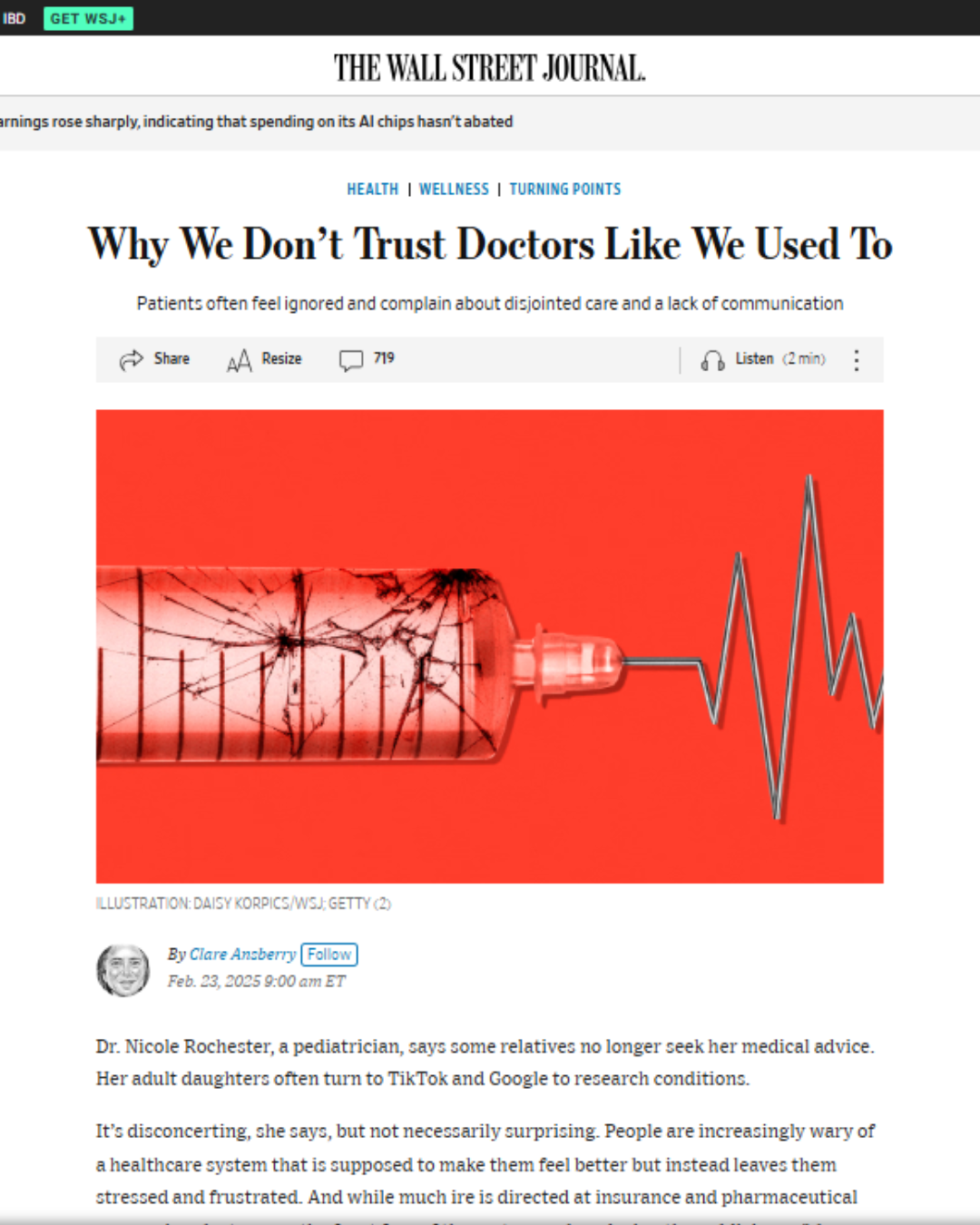
During one of my dad’s more frustrating hospitalizations my sisters and I were having a very difficult time communicating with the doctors. We provided them with numerous examples of his confusion and disorganized thoughts. We had significant concerns about his mental status and ability to care for himself yet the doctors kept telling us he was fine. They were attempting to discharge him one day after he was admitted, despite the fact that there had been no change in his condition. In a last-ditch effort, I faxed a few pages from the note pad he kept on his kitchen table, which showed a dramatic deterioration in his handwriting from small, meticulous letters to large, sprawling letters that had been written haphazardly with numerous overlapping strokes of a black pen. While I am typically reluctant to do so, I even played my “doctor card”, to no avail.
Studies have shown that patients speak for an average of 12-23 seconds before being interrupted by their physician. This is largely due to external pressures to see more patients, driven by decreased reimbursement from insurance companies. Time is literally money. In addition, doctors receive little formal training in how to communicate effectively with patients. We are taught maxims like “The history is everything”, referring to the fact that most diagnoses can be made simply by gathering a comprehensive and accurate patient history. However, we are not taught how to accomplish this in a very limited amount of time with numerous distractions.
While time is one of the most significant barriers, how doctors and patients relate to each other also plays a key role in communication. If a doctor is annoyed or irritated by a patient’s behavior or personality, he is less likely to listen intently to what the patient says.
Unfortunately, flawed communication is more than just an annoyance. There is a direct correlation between doctor-patient communication and health outcomes. In other words, your health depends on how well you can provide accurate information to your doctor and other members of the health care team. Here are five ways to get your doctor to listen to you during those precious few moments when you have their (hopefully) undivided attention.
- Come to the visit prepared.
You will likely only have a few minutes to share your concerns. Take some time before the visit to organize your thoughts. If you have a complex problem that has been going on for a long time, it is useful to write down key pieces of information (symptoms, timing, visits to other doctors, tests performed) in chronological order. Be specific and concise.
- Ask questions.
This is particularly useful when you feel your concerns haven’t been properly addressed or that the communication has been one-sided. Consider the following questions: What else could it be? Are there other conditions I should be concerned about? Are there alternative treatments for this condition? What should I look out for? Questions redirect the physician and promote engagement.
- Be respectful.
This one is fairly obvious, but deserves to be stated. It’s hard to be upbeat when you don’t feel well, but rude, aggressive, or disrespectful behavior will get you nowhere. The doctor is less likely to listen to your concerns and will be focused on getting you out of the office as quickly as possible.
- Be truthful.
This one is obvious also, but you’d be surprised how often patients are dishonest about their habits, exposures, compliance with therapies, etc. Your doctor can’t help you if she doesn’t have accurate information. We’re here to heal, not to judge, so don’t withhold important information. If your doctor suspects you are not telling the truth, she will be much less likely to listen attentively and may discount important information you provide.
- Advocate for yourself.
If you feel your doctor is not listening to you, it is imperative that you speak up. Restate your concerns in a clear and concise manner. Use qualifying statements like, “I have never had pain this severe before” or “This is different than what I’ve experienced in the past.” If you are concerned about a specific diagnosis share that with your physician so that it can be addressed during the visit. Explain the impact the symptoms are having on your daily activities, your emotional health, and your ability to care for yourself and others. If these tactics don’t work, it may be time to look for a new doctor.
The doctor-patient relationship requires both parties to be actively engaged. Getting your doctor to listen attentively is the first step.
Have you joined the Your GPS Doc Family? If not, please click here to receive notifications about new content as well as useful worksheets and additional resources only available to Your GPS Doc subscribers.







Leave A Comment